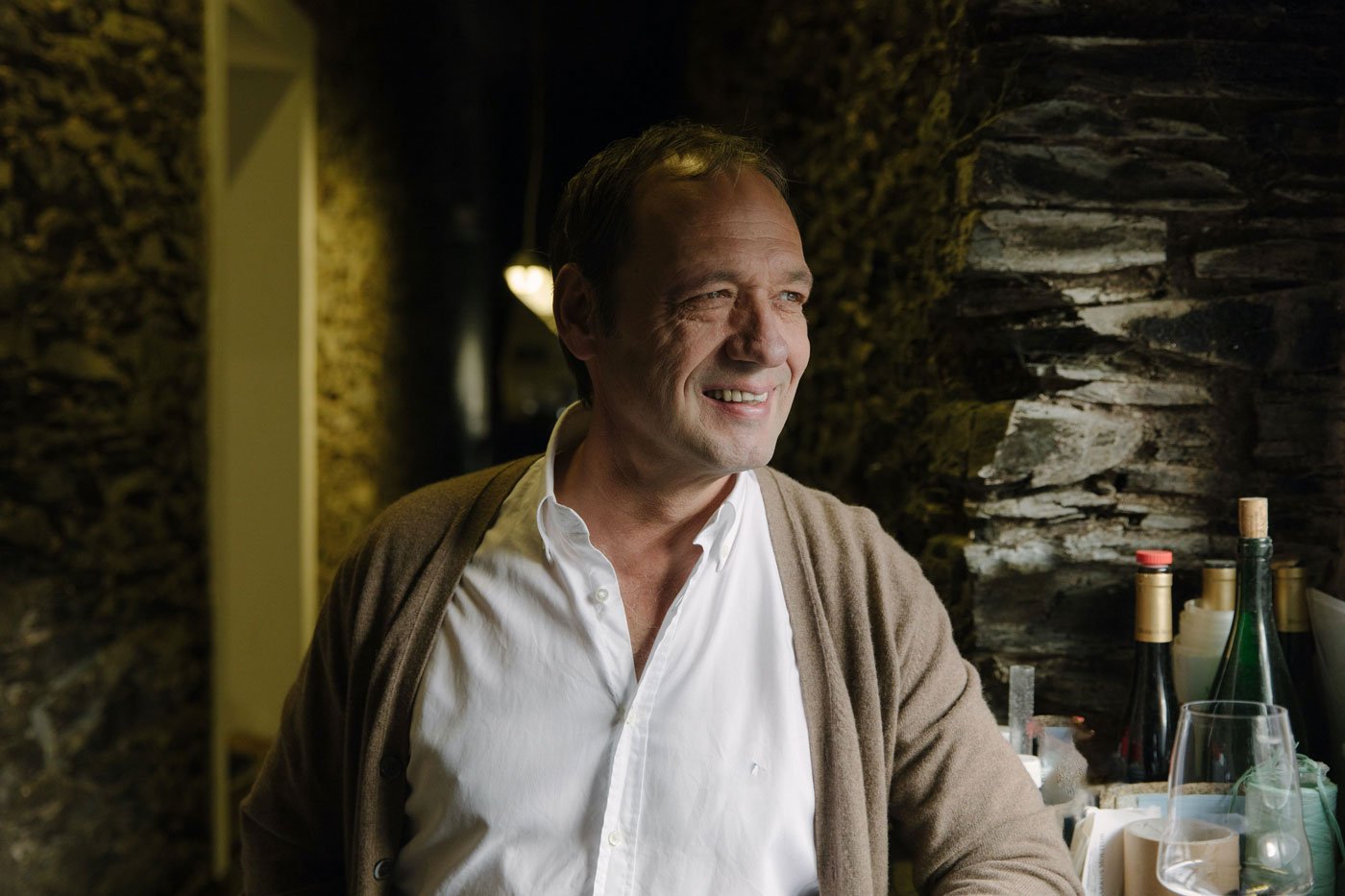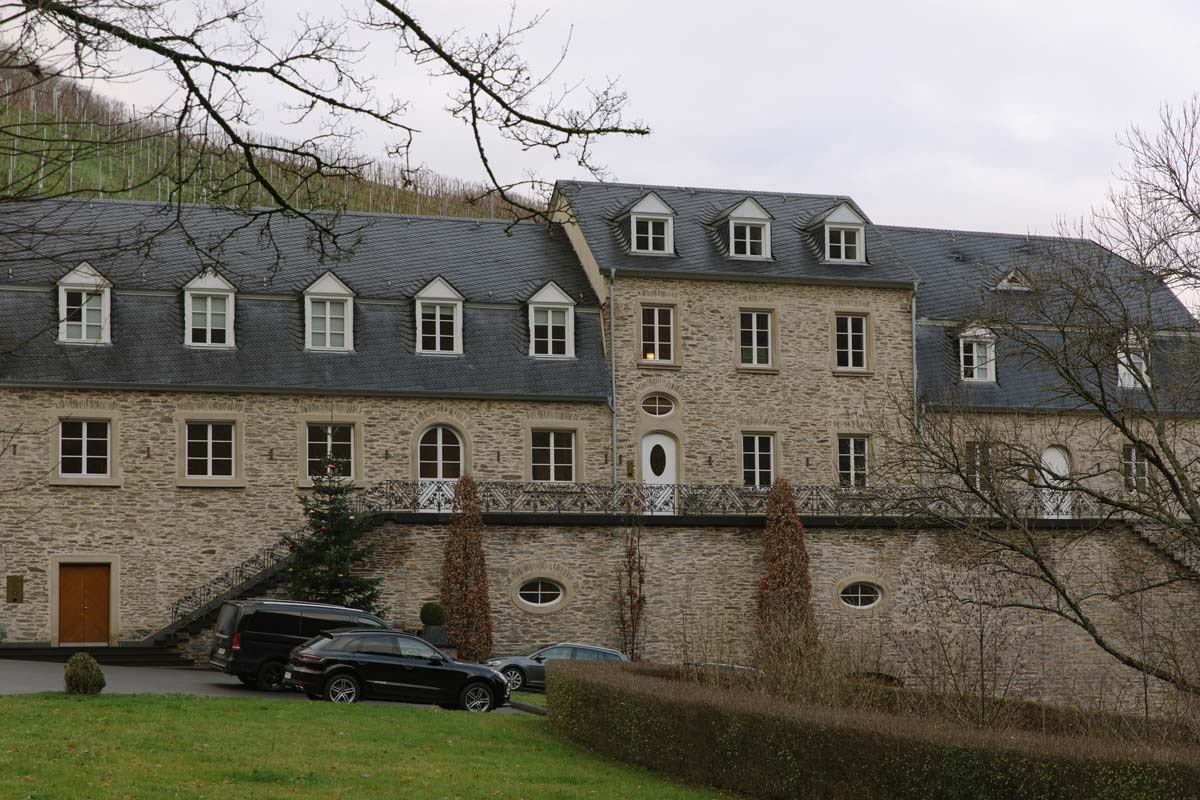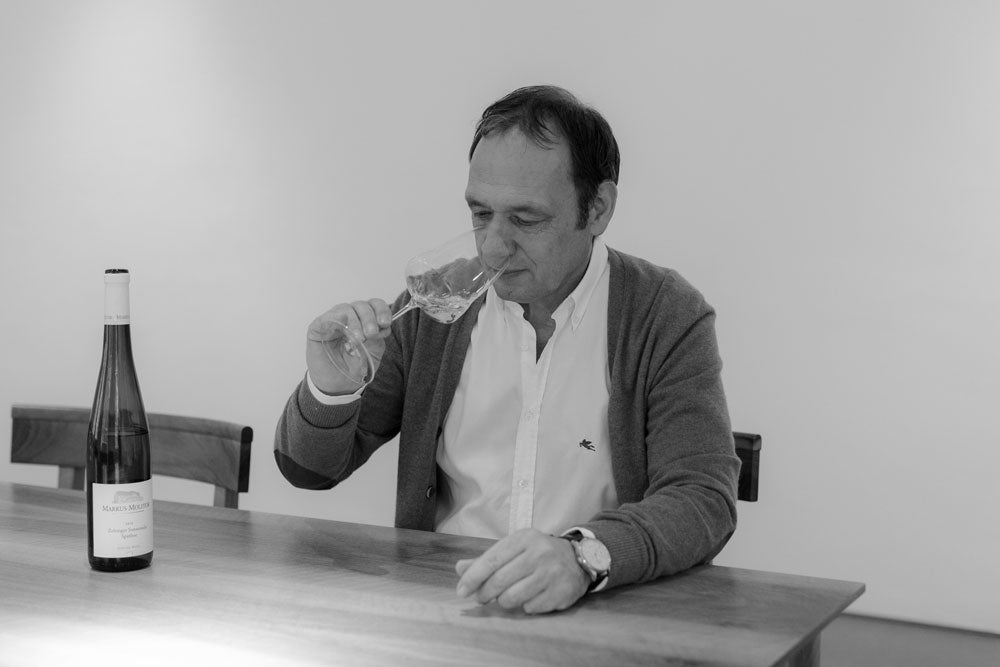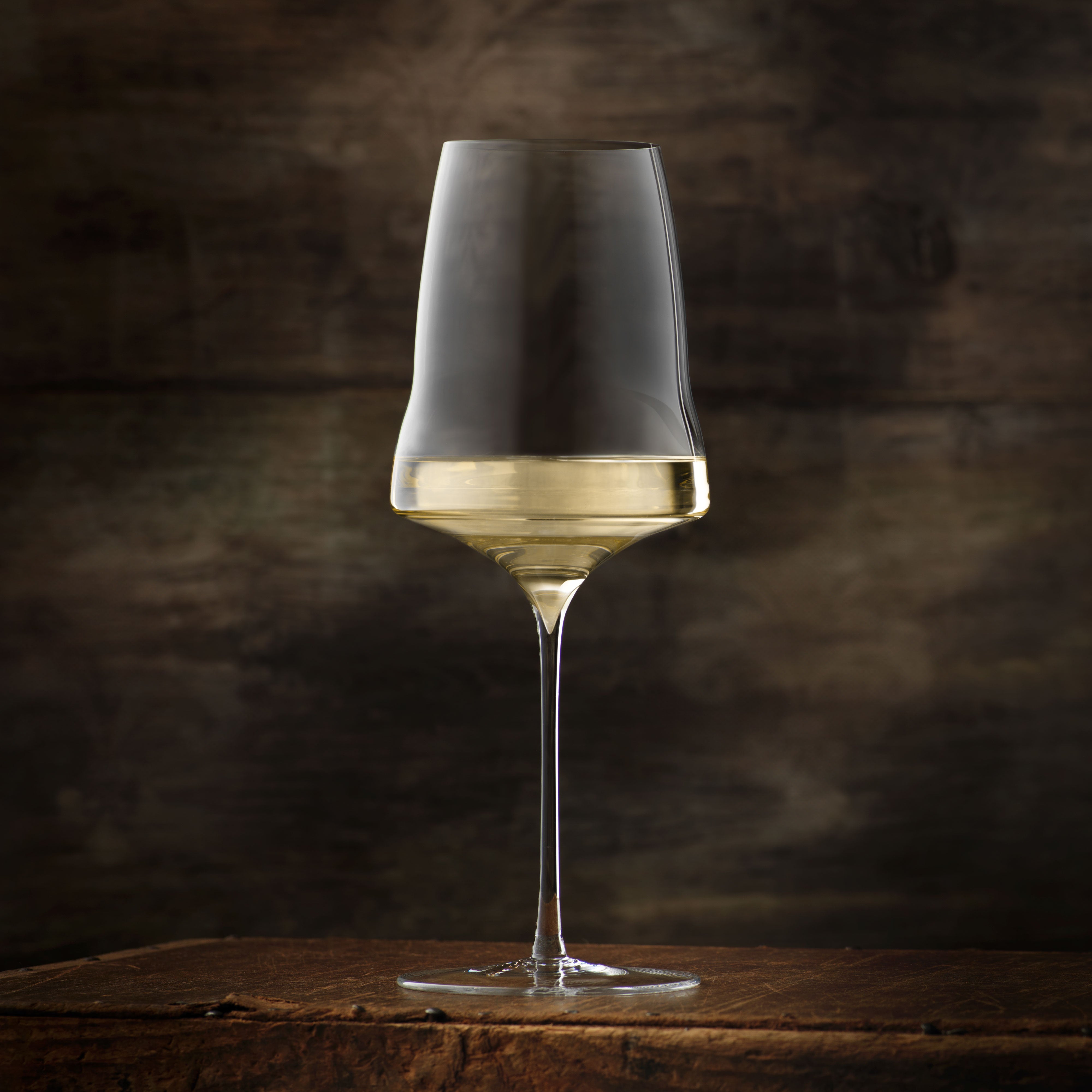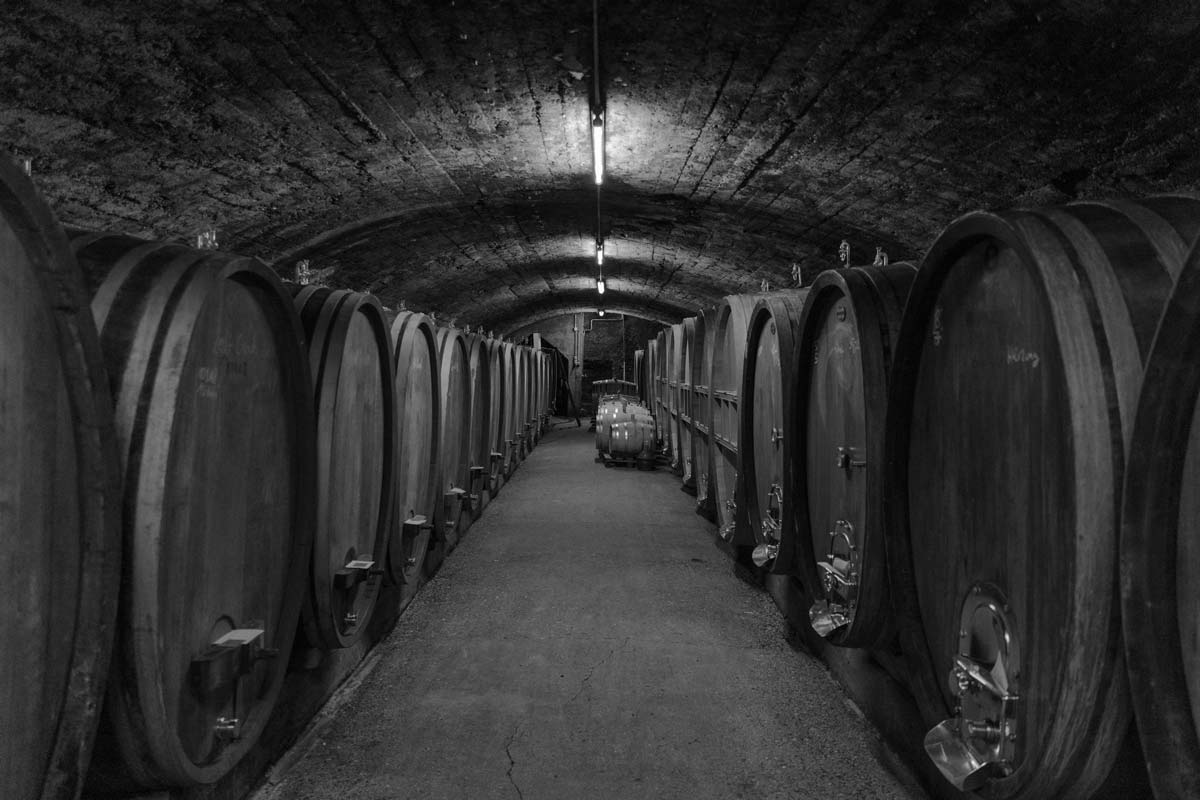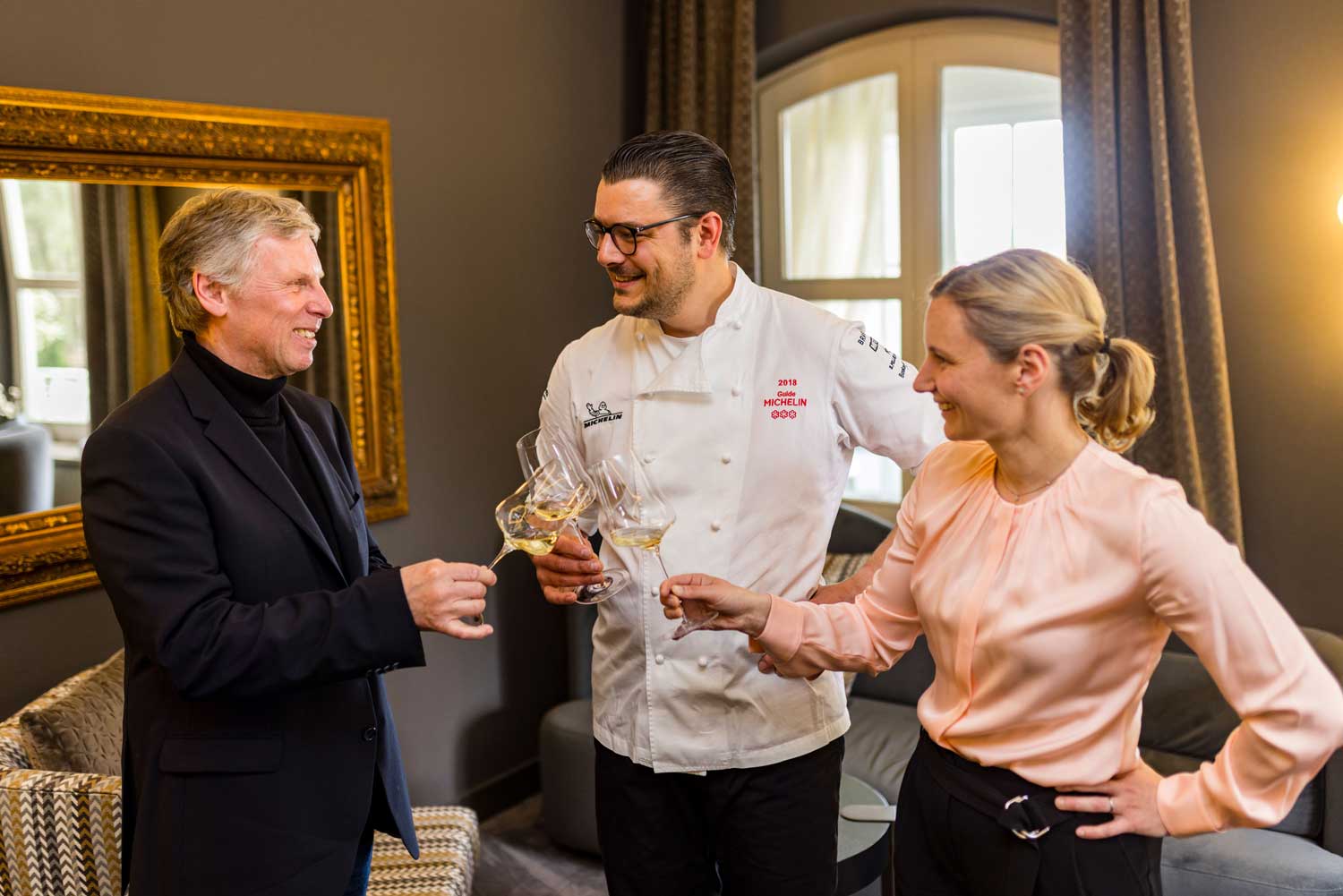"Too bad you can't caress a wine", Tucholsky once said. Similarly, when Markus Molitor talks about his wines, it is as if they are living organisms, as if they possess their own personality and soul. While conversing, it is not difficult to fully comprehend his love and devotion to this delightful beverage. Molitor is one of the most prominent winemakers in Europe. He is considered to be the saviour of the Moselle’s steep slopes and is especially celebrated for his Rieslings. In 1984, at only 20 years of age, he took over his father's winery with the aim of re-establishing the world famous, century old Moselle Rieslings and promoting the neglected wine region in a sustainable way. Through winning numerous awards, selling the wine in one of the finest restaurants and exporting the goods to over 50 countries around the world, the Molitor’s initial goals have been accomplished. What is it then, that drives him to dedicate every living cell of his body to growing wine, every day of the year?
If you visit him at his winery in the midst of the picturesque Moselle mountain landscape, you only get a vague idea of just how big his wine kingdom really is. Molitor now cultivates 120 hectares of vineyards along the Moselle and Saar. Haus Klosterberg serves as his headquarter, where the 55-year-old lives with his family, maintains a 3-storey underground wine cellar, and manages the daily operations of his wine shop.
Anyone who imagines a rustic restaurant with antlers on the wall is far off the mark. Bare white walls, vaulted arches, historical materials paired with contemporary minimalism, a 15-meter-long wooden table with nothing but wine glasses that catch the eye. "Purist, absolute concentration on the essentials", says Molitor. Wine becomes almost sacred here.
Molitor is generous with his selection of wines. The more diversity the guests get to experience through his wines, the better; from dry to finely tart, from fruity to sweet. He is also meticulous in his selection of the glasses. He tested each Josephinenhütte glass in advance and finally decided on the universal glass.
"Exciting, different, generous. An excellent glass that perfectly accentuates the subtle aromas and the finesse of our wines."
Markus Molitor
Molitor insists that his wines be enjoyed exclusively from the finest quality glasses. If you follow his work, the reasoning as to why this is the case, is clarified. In every drop of wine, there is a meticulous attention to detail and the excellent work of a genius is presented.
Starting with the planting of new vineyards and the question of which genetics to use: "We plant special vines with old genetics because we are not aiming for quantity but for quality, which always remains in harmony with the geographical conditions. This is a cultivated landscape; you can influence the circumstances as to how something grows."
To think up strategies for cultivation that will literally bear fruit is wonderful. On the way to perfect the final drop, every step of the process is checked, every grape is examined by Molitor and his international team and selected by hand before being processed further.
Molitor is hands-on in all areas of expertise, keeping the production extremely busy throughout the year. "To me, learning from the past means uncompromising manual work and a detailed selection in the vineyard and harvests, and precision in the cellar combined with the knowledge and experience of nature, grapes and winemaking."
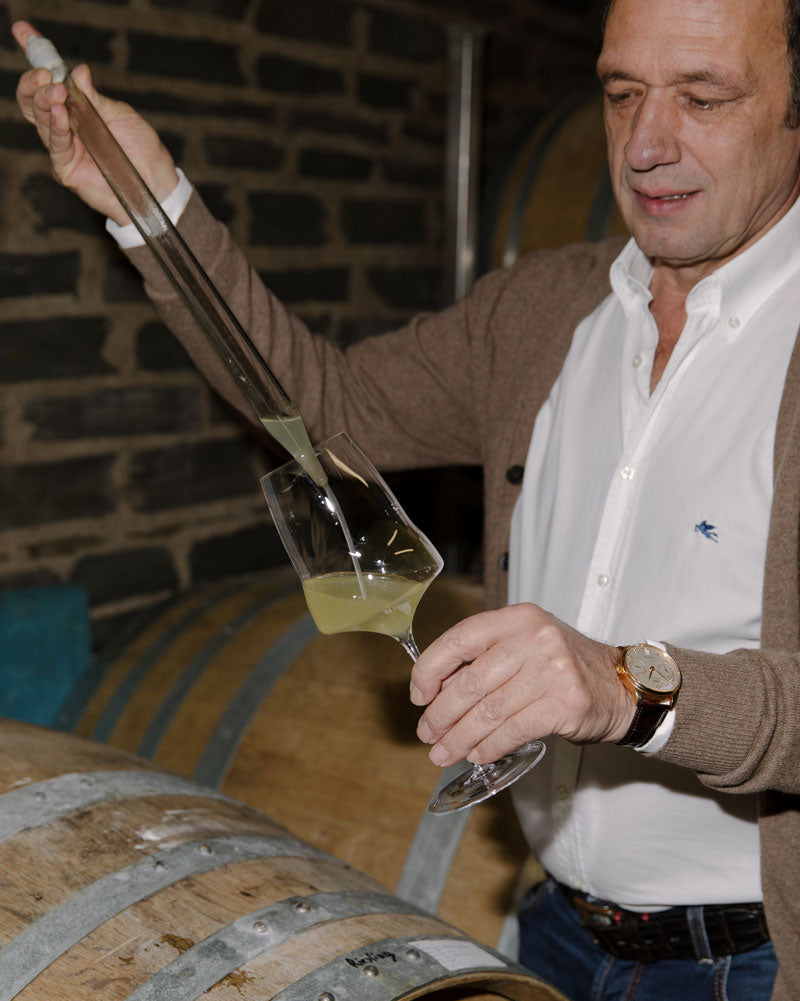
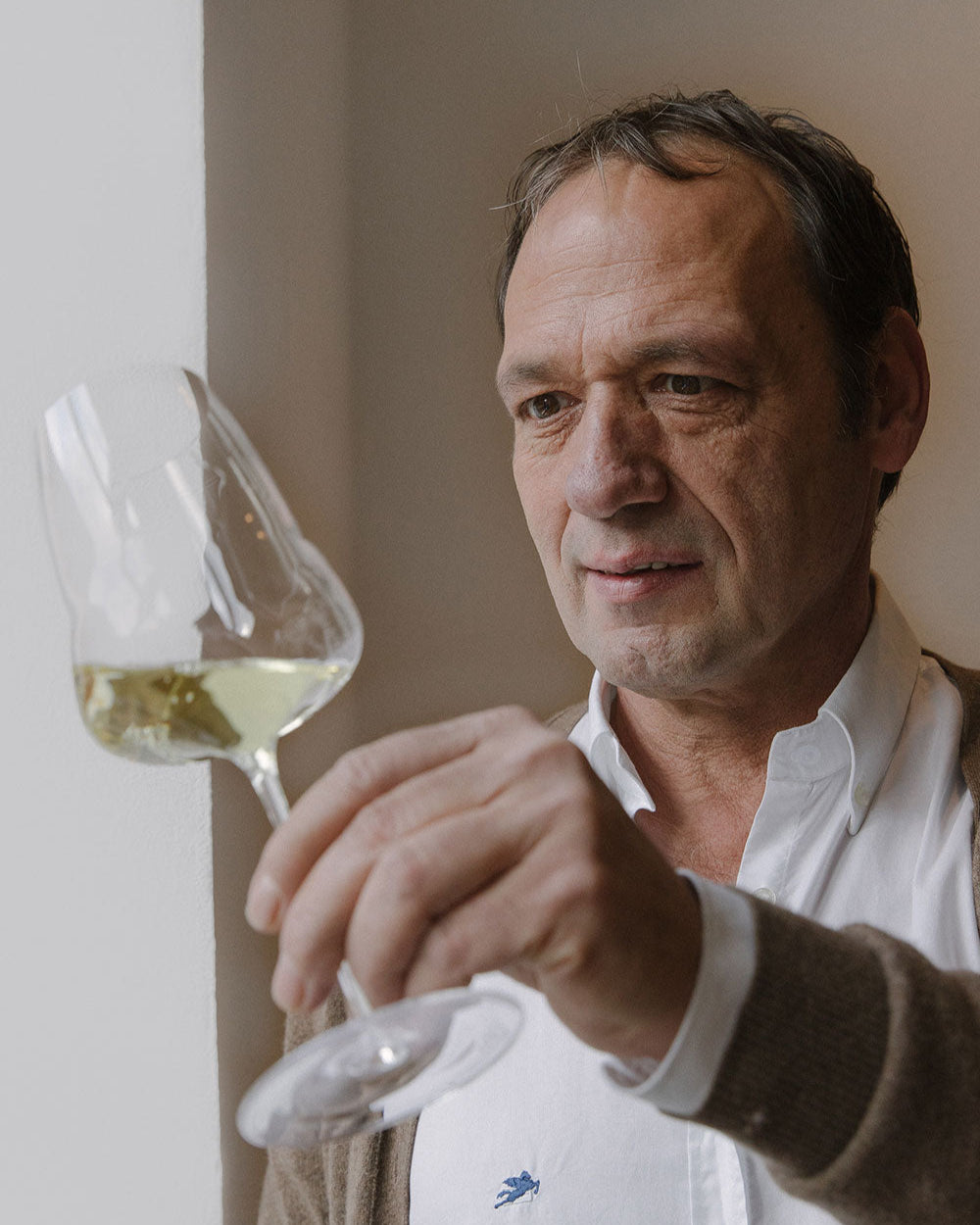
There are many moments throughout the production process, that remind Markus Molitor of his passion and love for this business, that he describes as being unforgettable; the first sip from the barrel, the first crop yield, drinking the young wines and being able to taste exactly their different origins. "Pure nature!" is what Molitor describes these moments as.
During the planning time, while the vineyards are being prepared and the process of fermentation has begun, the vineyards can seem rather bare, however this is the time to look forward to spring when everything begins to bloom and the valleys turn a juicy green and the scent of vine blossoms fill the air. Even a man with years of experience like Markus Molitor cannot get enough of these precious sights and smells.
In autumn the harvest time begins, which is probably the most intense time throughout the year in the everyday life of a winegrower. Molitor has no time to think of taking a break – the fact that he has been on holiday several times throughout the past few years, is thanks to his wife and children, who always remind him to enjoy and nurture his personal life. But even this, he likes to combine with his passion for wine and good food. After all, his mother had her own French cuisine restaurant, while his father was also a passionate winemaker.
It was a stroke of fate that led Markus Molitor into the world of wine at an early age. His father was left paralysed in the right arm after an accident, which meant his son literally had to become his right arm in the wine cellar. His enthusiasm for wines grew and it was clear from an early age that he wanted to continue and develop the life's work of his family. It is Molitor’s wish, that his sons will one day be involved in the winery with their heart and soul and follow in his footsteps. "If they don't go down that road, that’s okay, but I would hope they someday discover their passion for wines, perhaps even after they have tried other career options."
After all, the winemaking culture is constantly changing and modernising in small ways. More and more young women for example, are beginning to find their way into the still very male-oriented business. Markus Molitor hopes that in the future he will be able to attract even more female colleagues and that sustainable winegrowing will have to deal with less bureaucracy. Until then, there is no stopping him from living and fighting for his passion every second of the day.
How does he manage to find peace of mind when he's working to such a high capacity? In the evenings Molitor likes to wander up and down the long hallways of his wine cellar, tasting his way through the barrels in peace and quiet to control the fermentation, but also to appreciate each of his wines, or as he sees them; his ‘flock’.
